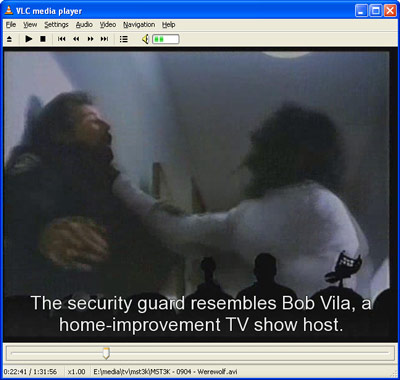This evening, I finally got my fate-client.py script minimally ready for general consumption. fate-client.py is the unimaginatively named program I threw together some time ago to allow me to validate test specs before I activate them so that FATE will automatically test them. It works like this:
- download the script (http://fate.multimedia.cx/fate-client.py)
- rsync the FATE suite of samples that live on mphq: ‘rsync -aL rsync://rsync.mplayerhq.hu:/samples/fate-suite/ samples’ (without the quotes, of course) — this presently amounts to ~150 MB
- build FFmpeg as normal
- ‘./fate-client.py -f </path/to/ffmpeg-binary> -s </path/to/fate-suite/samples>’
That’s it. The script will ask the FATE server for a set of test specifications and run through them. You may also need to specify -l/–libpath= if you built and installed FFmpeg with shared libraries. Naturally, ‘./fate-client.py -h’ will spell out all the options.
You would do well to make sure that all the options are valid or else suffer Python bailout exceptions. I just added the command line options tonight and have not made them very resilient. I have been promising this utility for a long time and I wanted to get something out there sooner than later.
Remember that I’m still a rank amateur at Python, so don’t be afraid to call me out if I’m doing anything in the worst Pythonic way imaginable.
Ideas for future improvement:
- Better logging– Instead of dumping to stdout, maybe dump all the results to a CSV file (for spreadsheet analysis) and/or an HTML file for easy viewing
- Proper versioning– I track the script via a local git repository, but how do I communicate the current version? Would this be version dd394ef8f3dad056c39ab4e1c76951190621cf8b?
- Robust error handling
- Range testing (run all tests up to ID n, or run all tests after ID n, or from IDs m to n)
- Skip a list of tests (for example, it would be useful to skip test #128 — the internal FFmpeg regression test — since it’s not that helpful in this particular scenario)
- [Your idea here]
It’s open source, GPL v2, so patches welcome. Moreover, I would love to hear if this script works at all for anyone else. Then, I would like to hear how it works on platforms outside of the 3 that FATE now rigorously tests– I speak of Mac OS X, *BSD, Win32 with either MSVC or MinGW, Open/Solaris on all its various platforms, even PlayStation 3 and whatever else. I actually did get that OpenSolaris VMware session to boot after I waited long enough but I had no idea how to do anything useful with it. That’s when I decided to get down to it and get this script out there so that hopefully someone else will test those platforms.
Extra credit: Figure out why, when bailing out of the test sequence early with Ctrl-C, terminal character echo is off. I.e., the terminal refuses to print keystrokes.
